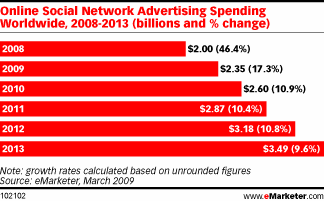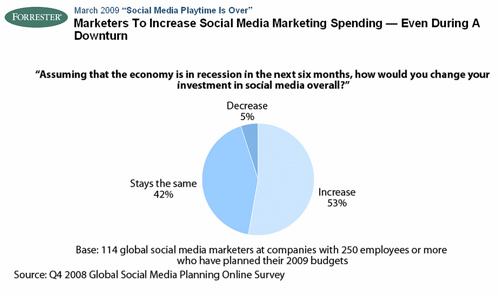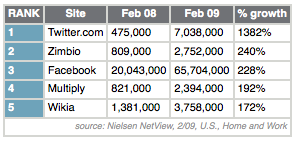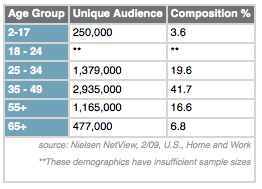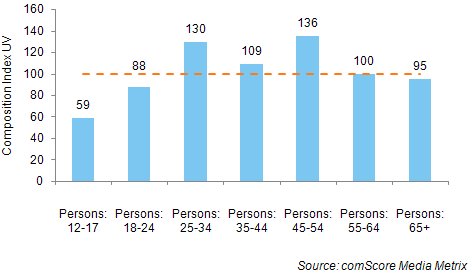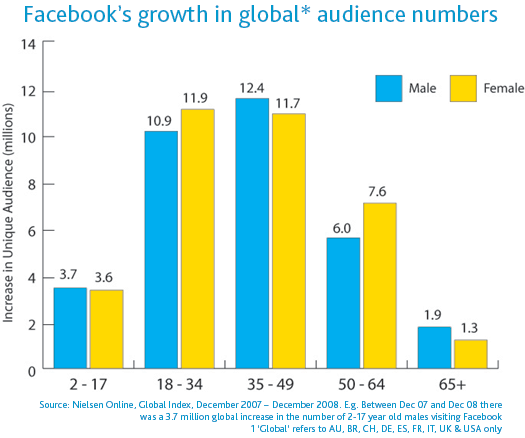Thank you to everyone who came to my presentation at WebVisions this morning! For anyone who missed my presentation or for people wanting a copy of the materials, I’ve uploaded them to SlideShare.
Tag Archives: community
ReadWriteWeb Guide to Online Community Management
I was lucky to get a review copy of the new ReadWriteWeb Guide to Online Community Management, which was just released this morning. I was also interviewed for the report, so you can find tidbits from my experience sprinkled throughout the report.
My favorite thing about this report is that it isn’t just a PDF document, it comes with a companion site, the Community Management Aggregator, which provides great ongoing resources for people interested in community management. It has a custom search engine for the best community management content along with 3-10 new community management articles per day from some of the leading community management practitioners. I’m already finding great content that I hadn’t yet discovered on my own throughout this companion site. It also has other useful tidbits including OPML files with lists of great blogs, links to Twitter accounts for the top community management thought leaders, and more.
The report is also really interesting. It contains basic information, discussions about whether you really need a community manager, return on investment for your community, job descriptions, dealing with difficult members, interviews and more. The report also has plenty of links to other content, links to reference materials, and other pointers to great content. You can also download a free sample section of the report to get a better feel for the type of content being included.
The whole package is priced at $299. You can learn more about the report on the ReadWriteWeb Guide to Online Community Management page.
Related Fast Wonder Blog posts:
Twitter Doesn't Get Community
For those of you who don’t know, yesterday Twitter made a “small settings update” that prevents you from seeing any @replies from your friends that reply to a user that you aren’t following. I’m not going to explain the details, since ReadWriteWeb and TechCrunch did a great job of covering the change. You can read those two articles if you want the background information.
What I do want to talk about is how this is a symptom of a greater problem that has the potential to destroy Twitter if they don’t make some changes to the way they operate. But first, a history lesson. @replies on Twitter evolved out of a community groundswell where people started using @replies to reply to other people on Twitter. Over time, Twitter realized that this was a great way for people to make public replies, and they began officially supporting this community driven feature. Now, they are taking something the community built and making it significantly less useful. Twitter doesn’t get community.
This is very dangerous for Twitter, since the service only survives because of the community of people who use Twitter. By all technical measures, Identica / Laconica is a superior platform for Twitter-like conversations, but few people use it. Why? Because the community is already on Twitter, and getting a community to move to a new service is close to impossible unless the community isn’t being supported. Missteps, like this one, have the potential to drive the community away from Twitter. If the community moves away from Twitter and to a new service, Twitter will die, because without the community, Twitter has nothing.
I’m not one to complain without some suggestions for how to improve, so here’s my suggestion. Twitter needs to hire a kick-ass community manager. I’m sitting here at the Community 2.0 conference, and there are plenty of fantastic community managers for Twitter to choose from. A great community manager can be an advocate and voice for the community from within Twitter to help the company understand how it’s actions will be received by the community and help Twitter avoid disasters like this most recent one.
Related Fast Wonder Blog posts:
Discount on my Companies and Communities Book for Community 2.0
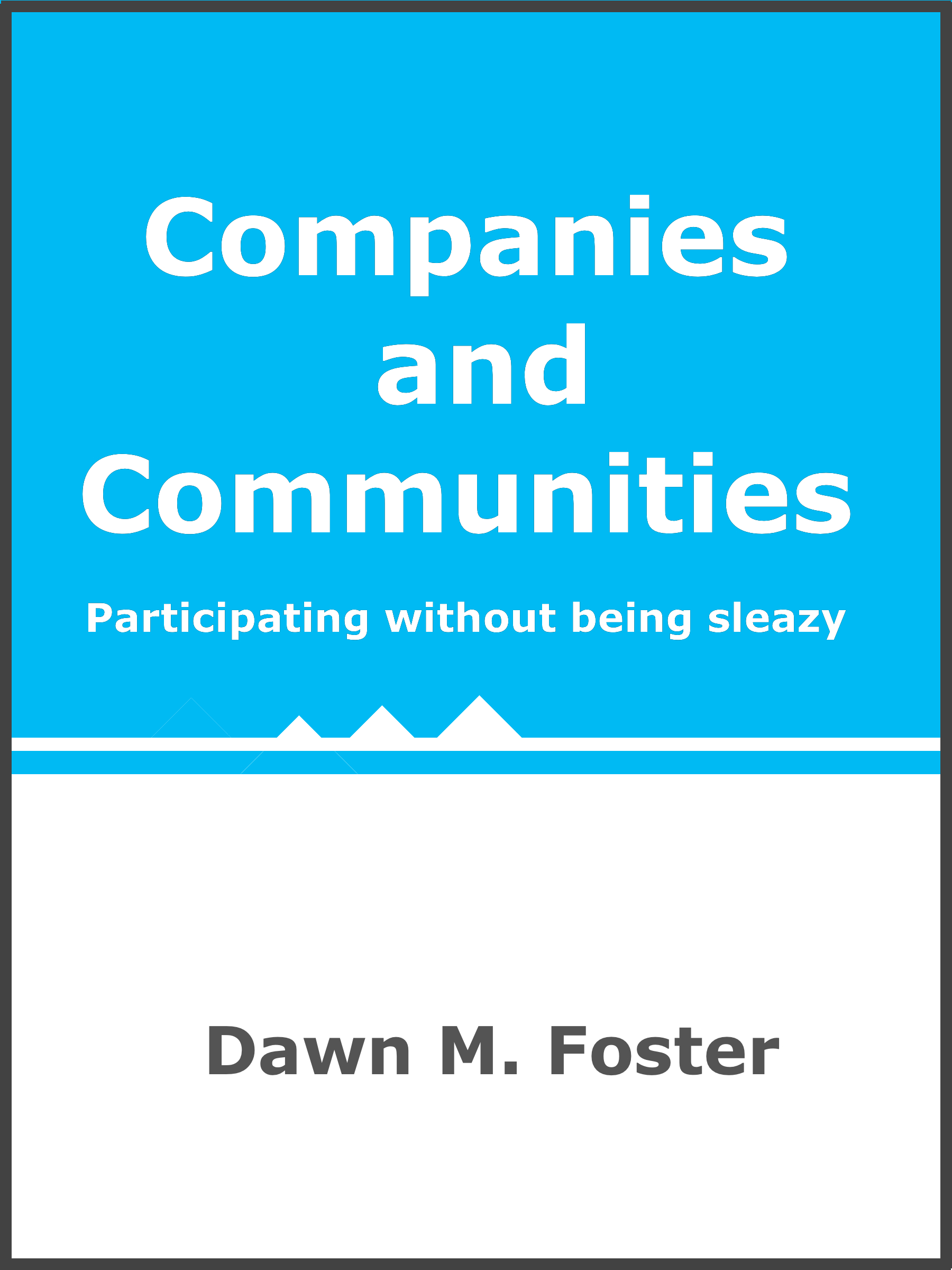 I’m spending the next 3 days at the Community 2.0 conference, so I wanted to offer a discount for anyone wanting to order Companies and Communities: Participating without being sleazy. For this week, you can get the paperback book for $3.00 off by using this discount code: QYW8QS6W to get it for $12.99.
I’m spending the next 3 days at the Community 2.0 conference, so I wanted to offer a discount for anyone wanting to order Companies and Communities: Participating without being sleazy. For this week, you can get the paperback book for $3.00 off by using this discount code: QYW8QS6W to get it for $12.99.
The 130 page Companies and Communities paperback is normally available for $15.99. It’s small, light and easy to carry around with you or read on the plane. The book is also available on Amazon (they won’t let me give you the discount), but for those of you with Amazon Prime, you might want to get it from Amazon anyway.
If the dead tree paperback version isn’t your thing, you can also get the PDF eBook for $9.99, and you can also get it on the Kindle for $9.99.
As always, I appreciate any feedback about the book (typos, additions for future versions, etc.).
Social Media Users Are Older and More Business-Like Than You Think
I had an interesting conversation with a client recently who was expressing doubt about whether their audience, less technical business professionals over 40, was participating in any meaningful way in social media. As a result of this conversation, I spent some time digging into the data, and I wanted to share what I learned.
Your Competitors Are Investing in Social Media
Companies are continuing to invest more money in social media, which will continue to fuel the growth of social media technologies. At least some of your competitors have plans to invest more resources and increase spending on social media. Here are a few examples from eMarketer and Forrester.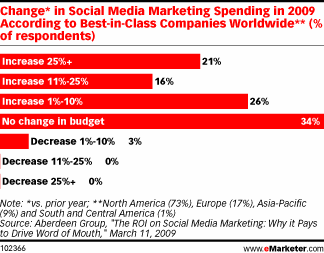
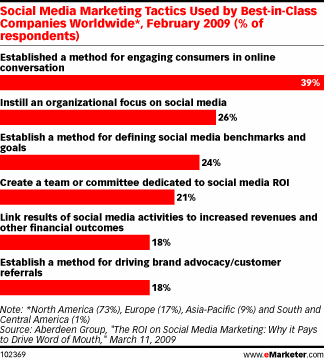
Twitter Users Are Trending Older
According to Nielsen, Twitter is growing rapidly and people using Twitter tend to trend older than you might expect with 35 – 49 year-olds making up almost 42% of the traffic to Twitter.com.
Nielsen has also found that the majority of Twitter users access it from work:
“Twitterers (a.k.a. Tweeters) are not primarily teens or college students as you might expect. In fact, in February the largest age group on Twitter was 35-49; with nearly 3 million unique visitors, comprising almost 42 percent of the site’s audience. We found that the majority of people visit Twitter.com while at work, with 62 percent of the combo unique audience accessing the site from work only versus 35 percent that accessed it from home only.”
comScore has also noticed a similar trend in Twitter users:
“18-24 year olds, the traditional social media early adopters, are actually 12 percent less likely than average to visit Twitter (Index of 88). It is the 25-54 year old crowd that is actually driving this trend. More specifically, 45-54 year olds are 36 percent more likely than average to visit Twitter, making them the highest indexing age group, followed by 25-34 year olds, who are 30 percent more likely.”
Facebook Users Are Trending Older
According to Nielsen:
While social networks started out among the younger audience, they’ve become more mainstream with the passage of time. Not surprisingly the audience has become broader and older. This shift has primarily been driven by Facebook whose greatest growth has come from people aged 35-49 years of age (+24.1 million). From December 2007 through December 2008, Facebook added almost twice as many 50-64 year old visitors (+13.6 million) than it has added under 18 year old visitors (+7.3 million).
According to Inside Facebook:
Looking at Facebook US audience growth over the last 180 days, it’s clear that Facebook is seeing massive increases in adoption amongst users 35-65. The fastest growing demographic on Facebook is still women over 55 – there are now nearly 1.5 million of them active on Facebook each month.
The biggest growth in terms of absolute new users over the last six month came amongst users 35-44. Over 4 million more US women 35-44 and nearly 3 million more US men 35-44 used Facebook in March 2009 compared to September 2008.

Online Community Participants Also Increasing in Age
There you have it. A big data dump of various research into social media and online community age demographics. If you know of other research, please feel free to share them in the comments.
Related Fast Wonder Blog posts:
Companies and Communities Available in Paperback
 Those of you who have been holding out for a dead tree version of Companies and Communities: Participating without being sleazy are now in luck. Companies and Communities is now available as a 130 page paperback book for $15.99. It’s small, light and easy to carry around with you or read on the plane.
Those of you who have been holding out for a dead tree version of Companies and Communities: Participating without being sleazy are now in luck. Companies and Communities is now available as a 130 page paperback book for $15.99. It’s small, light and easy to carry around with you or read on the plane.
For anyone who needs an extra incentive to order it, you can get $3.00 off from now until May 2 by using this discount code: QYW8QS6W to get it for $12.99. I’ll even sign it if you can catch me at Beer and Blog or other local tech events. 🙂
I’ve also lowered the price of the PDF eBook to $9.99, and you can also get it on the Kindle for $9.99.
As always, I appreciate any feedback about the book (typos, additions for future versions, etc.).
Online Community Training
I haven’t been blogging much here this week, but I have been busy. I’ve been spending this week in New Jersey at a client site providing them with training on online communities and social media in addition to helping them plan for several upcoming online communities. I thought that some of you might also be interested in seeing a scrubbed version of the online community training that I delivered.
This online community training covers these topics:
- Introduction and Guiding Principles for Participation
- Planning and Getting Started
- Content Roadmaps
- Online Community Management
Contact me if you would like to have me train your company on online communities.
Related Fast Wonder blog posts:
Building Strong Online Communities Panel at SXSW
Here are my notes for this session. These are the words of the panelists (not mine) as best I could capture them (please forgive the typos).
Building Strong Online Communities
Erin Kotecki Vest BlogHer Inc
Drew Curtis The Member, Fark.com
Alexis Ohanian Prod Mgr of Awesome, reddit.com
Ken Fisher Editor-in-Chief, Ars Technica
Erin: BlogHer is the largest online women’s blogging network. It started as a conference after a flame war about where were the women bloggers. As a community, they decided where to go after the first conference.
Drew: Added comments to Fark in 2000. Prior to that, they didn’t realize that they had an online community. It was mostly organic.
Alexis: Started as a place for people to get news as a community.
Ken: Community started by wanting to replace email with comments to outsource tech support and have others answer questions. Wanted a high signal to noise ratio – Usenet started to become overun with trolls, so they wanted a smaller community to share knowledge, get answers, and retreat from some of the other places online to be a little different.
How do you balance your own vision for the community vs. where the community wants to take it?
Drew: there are so many voices and you have to make sure you are representing what most of the people want vs. what a few vocal complainers want. You have to balance those complaints vs the other comments or traffic. Tyranny of well organized minorities.
Alexis: When it came time to grow, they started to grow the subcommunities, but they were putting a lot of time into creating them, but they found that they could turn it over to users and let them create new ones.
Erin: They bring the community in to vote on conferences, etc. You have to listen to your users.
Alexis: It doesn’t scale when you have one person trying to answer all of the feedback emails, but most of the feedback comes in via email.
Ken: Twitter is a great way to get feedback about the community. Very few people are daily participants. Only 4% of readers visit the forums. Getting feedback is hard. They created a forum where you can post feedback. The benefit is that other members can respond to the feedback, so the company doesn’t have to respond to everyone. You need to care about what your community thinks and be transparent about the feedback. It’s important to give people a place to criticize you outside of specific topics.
How does the community influence or police itself and how did you get there?
Erin: BlogHer is unique because they have strict community guidelines. A safe environment with civil discourse without name calling. Community guidelines are stringent and the members help police each other.
Drew: Don’t be an asshole. They have a nark function where people can nark on each other, but sometimes people self-organize to try to get someone in trouble. The nark throws the comment into a queue where someone takes a look at it. They also lock people out for a specific amount of time for bad behavior – and they log bad behavior to give people a first notice before taking other action.
Alexis: they have a wiki etiquette page for the community. The up and down errors tend to take care of most of the issues, but they have turned most of the control over to the users who have created the specific subsite (moderation, etc.)
Erin: They pull down inappropriate comments and email the member to let them know what they did wrong.
Drew: They pull stuff down & can always reverse it if they made a mistake.
Ken: They don’t moderate any content unless it’s spam. They don’t want anything that might be perceived as censorship and don’t want to abuse the trust of the community by silencing people instead of letting them have a say and a voice.
Erin: Rarely have backlash, since they rarely need to pull anything.
Drew: They permanently ban a bunch of people who have behaved badly. They have a system that prevents people from just signing up again.
Ken: They have a list of rules and if they do moderate, they specify exactly why their comment was pulled. This removes the impression of having a bias or censoring, since they have specific rules about what people can / can’t do. This makes it transparent. They also try to rehabilitate users. Start with a one week ban, then a month, then perma-ban (not quite permanent for those who want to come back). Most won’t come back as a different user, since they don’t want to abandon the identity that they built on the site. They rarely ban (1 a month or so).
Erin: Community guidelines help community managers maintain sanity even during hot times like the election season. It got heated, but it was civil discussion in a respectful manner.
What are some of the big mistakes that community managers make?
Erin: They tell rather than ask. They make changes without getting any input from the community and don’t involve the community in decisions
Drew: Alternate identities to troll users. You don’t want to listen to the community too much during times of change. Give people time to get used to the changes and “get over it”. You have to discount some of the complaints to factor out the external stuff and focus on the things that really should be changed.
Alexis: The vast majority of users are a silent majority. The people who view and consume, but never tell you how they fell. You can reach out to them and at some point you have to trust your gut and make the tough calls.
Drew: If people are still complaining after 2 weeks, they start to make changes.
Ken: Always share the results of surveys and other feedback. It shows what people really think and helps people understand where you are coming from. They started with 3 forums and now have 26 forums. They add them as they were needed. A huge mistake is to create a bunch of subtopics and forums, which makes your community look like a ghost town and reduces participation. It’s really important to start small. When you are managing a community, it can be hard not to let your ego get away from you. They learned not to let the egos get in the way by punishing people and getting vindictive. Can’t get sucked in.
Erin: BlogHer has a great community manager. You need to be patient, levelheaded, calm and neutral to handle people yelling at each other with grace. Need to be able to multi-task and look at many things at once.
Erin: The conferences are community driven, which makes it easier to organize the conference, since the community picks the content.
Online Community Podcast: Dawn Foster, Marshall Kirkpatrick and Alex Williams
If you missed the discussion that Marshall Kirkpatrick, Alex H. Williams, and I had in the Blogger Pavilion at the Business Leader NW conference yesterday, you can still listen to the conversation thanks to Luke Lefner of Broken Hours. You can visit his blog post about the discussion to learn more.
Podcast: Download
Related Fast Wonder Blog posts:
- Why Companies Should Have Online Communities
- Online Community Manager: Yes, It’s Really A Job (Slideshare)
- Custom Corporate Communities: Planning and Getting Started
- Podcast Episode 6: Online Community Management with Stormy Peters
- Episode 5: Data Portability and Social Networking in Online Communities with Scott Kveton
Online Community Manager: Yes, It's Really A Job (Slideshare)
Earlier this week, I did a blog post with this name on WebWorkerDaily talking about community management as a profession in preparation for my presentation at Oregon State University this afternoon.
The presentation covers several topics related to community management careers:
- Defining Community
- Community Manager Jobs (examples, job description and skills required, salaries)
- Guiding Principles and Best Practices
Several people have asked for the slides, so here are the ones I’m bringing with me to the presentation. As always, I may take it in a different direction depending on the questions from the attendees, but at least this gives me something to deviate from.
